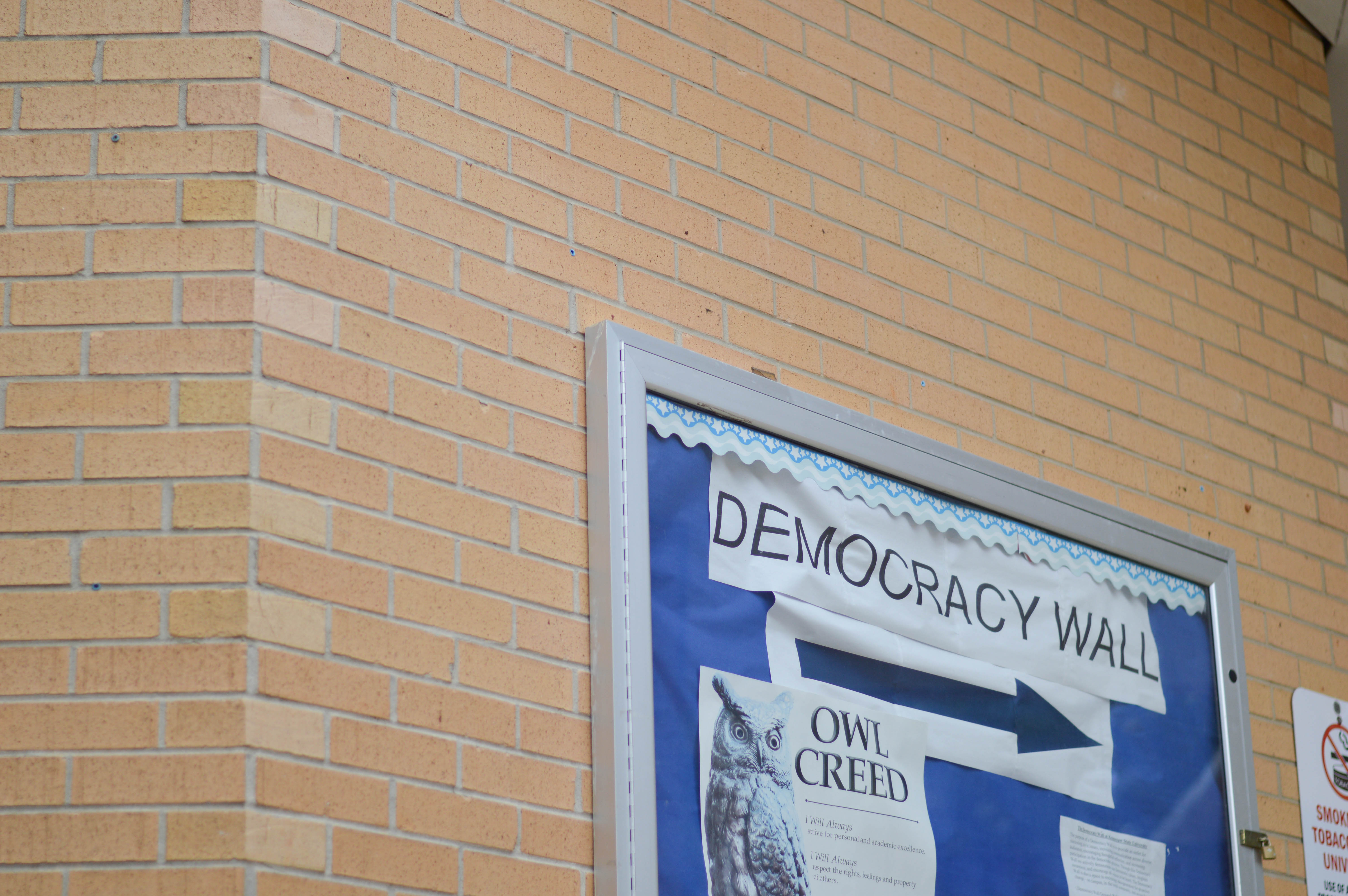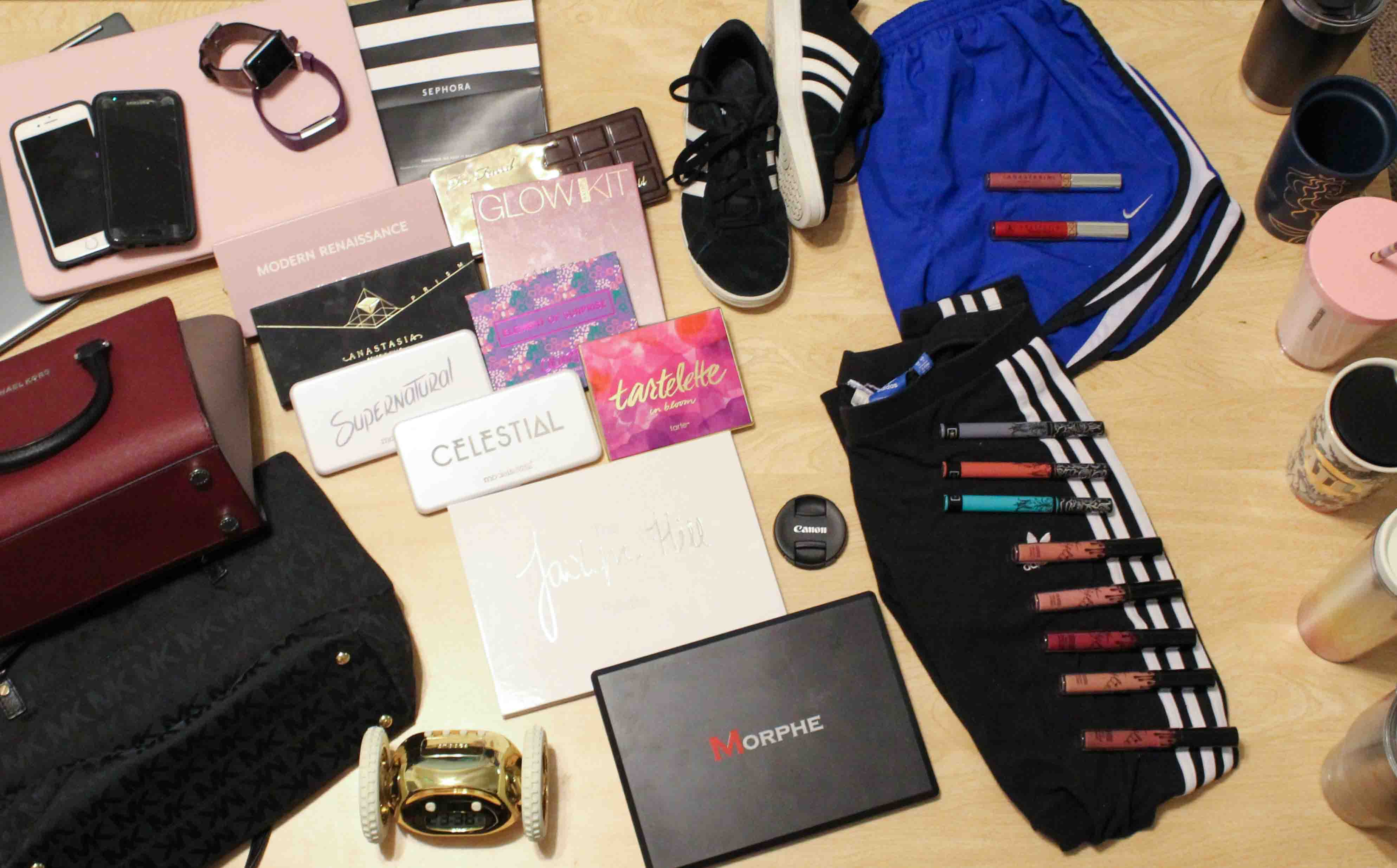Kennesaw State’s Democracy Wall has failed to advance proactive change, dignity or democracy among students.
The exchange of well-reasoned, well-researched ideas is a critical part of the collegiate experiment, where a failure to communicate is a failure to educate. Hoping to foster civil communication between peers with differing ideas, KSU installed a public forum in the fall of 2016 called the Democracy Wall.
Located outside the Horace W. Sturgis Library, the Democracy Wall is a set of two chalkboards with a set of posters explaining its mission and rules. According to the rule board adjacent to the wall, students are to use the wall for “discussing civic issues, encouraging thoughtful reflection . . . and demonstrating democratic values . . . for proactive change.”
The rules instruct students to use words that “reflect dignity” and “fair play” in order to be respectful and to abstain from hate speech. On the blackboard is an assortment of drawings, scribbles and text scrawled in white and yellow chalk.
The few messages of kind intent are surrounded by a sea of deprecating speech, drowned in an unruly mess of chalk.
The conversations are brief, unarticulated and often hostile. There are numerous illustrations on the wall that are the kind of things you would expect to see in a high school locker room — a medley of slurs and language unfit for print.
While it is tempting to believe that the volume of such language must be exaggerated, the truth is that hateful speech is overwhelmingly common on the Democracy Wall.
“I’ve passed by that board after class for a year now. There is always a slur of some kind,” said Emmanuel Castillo, a senior studying English at KSU.
When asked about the wall’s content, Emmanuel expressed concern over tolerating such behavior.
“Everyone does it so it must be fine — that’s how we justify it, but it’s not fine.”
Despite efforts by students to wash away crude language and keep the board civil, bad behavior continues to emerge. In an anonymous environment with no supervision, it is only a matter of waiting until the next instance of gross misbehavior.
The Democracy Wall proves that sincere dialogue is not achieved without effort. Without proper oversight, the wall has devolved into bullying, trolling and hate speech. Anonymity has become an excuse for inappropriate and immature behavior free of repercussions. There are no social consequences for even the most heinous speech.
Instead, it has succumbed to toxic speech that has infected our public dialogue. It is a critical failure in the quest to mend our trust in public expression. The Democracy Wall has fallen gravely short of its mission while showing a complete inability to enforce its own rules, and therefore, it must go.
Let me reiterate that I believe in the sanctity of free speech. The wall, however, is an unsuitable medium for that speech. The board has woefully limited space. Participants cannot really converse due to extreme clutter and a lack of time. How can we “discuss civic issues” faithfully in such a space? The answer, as evident by the state of the wall, is that we cannot.
KSU wants a public forum, and we should have one, but one where students talk to each other in person — one where good dialogue flourishes and hate speech is not tolerated.
We can start by taking down the Democracy Wall, denying hateful rhetoric a foothold in the public consciousness and paving the way for a better forum.


